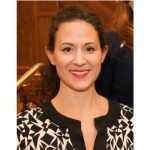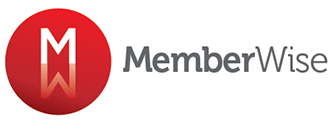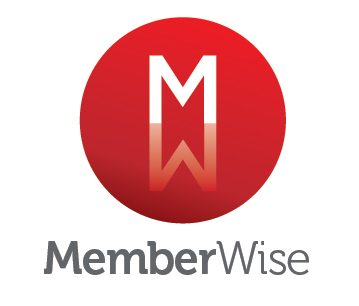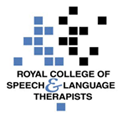MemberWise is delighted to introduce Dominique Lowenthal who is the Head of Professional Development at the Royal College of Speech and Language Therapists (RCSLT) and has a wealth of experience of using education pedagogy in adult learning, technology and change management techniques to achieve organisational aims.
 If you like adventure then where better to be, than bang in the middle of a rapidly evolving, multi-medium, multi-purpose CPD landscape?
If you like adventure then where better to be, than bang in the middle of a rapidly evolving, multi-medium, multi-purpose CPD landscape?
So what’s changing?
Firstly, we are changing. We’re becoming more responsive to threats and opportunities in the external environment that affect our membership and therefore there’s an increased sense of urgency to turn this information into practical support, learning and guidance.
Secondly, the definition of CPD is changing, from being traditional delivery of courses to ‘anything’ which interacts with the member in a way that causes a positive effect to their current or future practice.
The question seems to be how do we support our members to thrive and not unwittingly find ourselves being the ones standing in their way?
In recent years, there have been a number of major changes in learning trends in CPD. Here are my top four:
-
Recognising the power of the crowd
CPD needs to be closer than ever to the urgent problems our members are facing and be delivered faster, so it’s no surprise that terms like co-production, co-creation, emergence, iteration, piloting and prototyping are capturing peoples’ imagination and producing incredible results. Why? Because the goals that our members are striving for require the wisdom, knowledge and creativity that already exists in their professional communities. In other words, knowledge needs to come from up and down, across, and outside our memberships. I would highly recommend watching Chris Anderson talk about ‘Crowd Accelerated Innovation’ where he says that all you need to create sustainable self-fuelling cycles of learning is to have a crowd, give them a platform and shine a spotlight on the best.
Lastly, the crowd will tell you if the issue is simply a lack of CPD or a fundamental flaw in the system that requires a different approach altogether.
Our role:
• To encourage more fluid hierarchies, provide the platform for professional peer-to-peer support and amplify the sharing of great practice and ideas.
• At a strategic level, to build strong networks and allies with the centres of knowledge within our membership e.g. universities and other membership organisations in your sector.
-
Measuring return on time investment
The problem isn’t that there isn’t enough information; the problem is too much information and not enough time. The commodity of highest value to our members is time, that’s the currency counts.
Our role:
• To provide learning resources in ‘bite-sized’ micro-lessons that are quick to find, focused on real world issues and customisable.
• To review our current CPD ‘offer’ to members and consistently challenge ourselves to ask if that one hour video could have been summarised in 5 minutes.
• To consider capturing better qualitative feedback, measuring frequency of access and using brevity as an indication that people have come and quickly found what they needed.
-
Evolution of the ‘educator’
The role of educators is shifting from ‘chalk and talk’ models to becoming coaches, facilitators, ‘knowledge wranglers’ (think lassoing great info and customising it for the consumption of others), instructional designers, information architects and content curators.
Our educators (both in our wider membership and in our internal teams) make fantastic guides and mentors navigating people to the ‘really good stuff’ that has supporting evidence, is timely and relevant to the issues at hand. They can support your members whether they are taking specialist development routes or need to access general knowledge – ultimately they can guide learners from where they are, to where they want to be.
Our role:
• To celebrate, reward and recognise the value of our contributors -those who take the time to share what they have learned to guide and inform others.
• To equip our educators to understand the variety of technologies and methods for sharing learning.
-
Learning tools are becoming far more sophisticated and accessible
You may have heard the phrase ‘form should follow function’ (initially associated with modernist architecture), it’s the principle that the shape of a building or object should be primarily based upon its intended function or purpose. The same applies to learning methods. There are a multitude of different ways to create and share learning – from digital platforms that support communities of practice, or provide learning management systems and/or ways to improve access to our best resources, to specific tools that help you create infographics, webinar software, videos and the full range of face to face options e.g. events, workshops, 1-2-1 coaching etc. Knowing the array of tools and methods available and which are most suited for which purpose is a professional development area in itself.
Our role:
• To get to know our members: Who do they learn best from? Where do they want to access learning? How do they access information? What are their ‘real world’ challenges?
• To get to grips with the different possible ways to provide CPD.
Finally, I believe that professional associations have three major strengths:
- We care about members and believe in their integral value to society
- We know our members and can provide the means through which they can get to know and support each other
- We can provide support to our members by developing networks, developing and sharing resources, promoting advances, inspiring leaders and equipping them with the skills they need
I hope that this has been useful -as the saying goes ‘take the best, and leave the rest’ -). One of the biggest lessons I have learned as part of my own professional development as well as on behalf of my organisation, is just how valuable it is to network with peers, so please do get in touch.
Get in touch: connect with Dominique on LinkedIn; Follow Dominique on Twitter @DomLowenthal
References
Asset Based Community Development:
- Paper: Building Communities from the Inside Out: A Path Toward Finding and Mobilizing A Community’s Assets by John L. McKnight and John P. Kretzmann, 1993 http://www.abcdinstitute.org/publications/index.html)
- Website: What is Asset-based community development? https://en.wikipedia.org/wiki/Asset-based_community_development
Crowd sourced innovation:
- Top 5 TED talks about crowd sourcing and innovation: http://info.articleonepartners.com/Top-5-TED-Talks-about-Crowdsourcing-and-Innovation/
Leadership:
- YouTube: My favourite youtube video on leadership, and explains social movement theory in a nutshell: https://www.youtube.com/watch?v=fW8amMCVAJQ
- YouTube: The 60 Second Leader: Everything you need to know about leadership in one minute bites, Phil Dourado, 2007 https://www.youtube.com/watch?v=_hVOGDRpsoU
Learning networks:
Paper: Bramble Bushes in a Thicket: Narrative and the intangibles of learning networks: Cynthia F. Kurtz and David J. Snowden: Cognitive Edge Pte Ltd, 2006, http://old.cognitive-edge.com/wp-content/uploads/2006/10/52-Bramble-Bushes-in-a-Thicket-1.pdf
Marshall Ganz on Social Movement Theory and the role of associations
• YouTube: Organizing for Health stories of self – Marshall Ganz, PhD https://www.youtube.com/watch?v=WR2Evw4SjJE
• PDF: http://marshallganz.usmblogs.com/files/2012/08/Chapter-19-Leading-Change-Leadership-Organization-and-Social-Movements.pdf
• E-learning: He has an e-learning module online: http://projects.iq.harvard.edu/ganzorganizing
Oscar Berg on collaborating in a social era: The Collaboration Pyramid
• Article: Technology can help companies adapt to today’s fast-changing landscape, but digital strategist Oscar Berg says firms also must develop a “communication culture” throughout the organization. http://www.cmswire.com/cms/social-business/oscar-berg-collaboration-pyramid-improves-enterprise-communication-025429.php









Leave A Comment